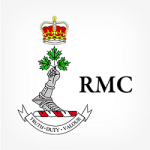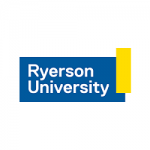Planning to Study Abroad? Register Now & Get a Call from Us.
- Home >
- Study Abroad >
- Study in Canada >
- Universities in Canada >
- Aerospace engineering Universities in Canada
University Of Toronto
Location: Toronto, Canada
Bachelors: CAD 45690 Masters: CAD 113775
Entry Criteria: IELTS ,TOEFL
McGill University
Location: Montreal, Canada
Bachelors: CAD 15,760 Masters: CAD 15,760
Entry Criteria: IELTS ,TOEFL
Confederation College canada
Location: Ontario, Canada
Bachelors: CAD 13,302
Entry Criteria: IELTS ,PTE MORE
Ecole de Technologie Superieure
Location: Montreal, Canada
Masters: CAD 3226
Entry Criteria: IELTS ,TOEFL
Northern Lights College
Location: Dawson Creek, Canada
Bachelors: CAD 11580
Entry Criteria: IELTS ,TOEFL
Royal Military College of Canada
Location: Alberta, Canada
Ryerson University
Location: Toronto, Canada
Bachelors: CAD 18200 Masters: CAD 20144
Entry Criteria: IELTS ,PTE MORE
- 1
Engineering Universities in Canada
Canada is known internally for two things, mostly- its cultural diversity, and its high standard of education. When it comes to the latter, the country is a natural favorite for international students due to the variety of courses and programs it offers, at the different levels of education in Universities in Canada. Among all the courses that draw international students from all corners of the world to Canada, Engineering in Canada is the most popular one.
With the majority of international students opting for engineering, the subject stands at the forefront of global education in Canada. One of the important reasons behind the popularity of engineering programs in the country is that Canada has some of the best engineering institutions like the University of Toronto and UBC which fall among the top 50 engineering colleges in the world.
Why Choose to study engineering in Canada?
Studying Engineering in Canada has its own benefits. As one of the world's leading economies, Canada will provide Engineering graduates with ample amount of opportunities, and to take the best advantage of these, students can pursue engineering from one of the many colleges that are accredited by the Accreditation Board for Engineering and Technology (ABET).
- A host of colleges in Canada offer various types of engineering degrees, from Electrical Engineering to Chemical Engineering to lesser-known specializations such as Agricultural Engineering, Biomedical Engineering, and Environmental Engineering. Students can also pursue higher studies by doing a master in Canada or even doing research.
- Canada is one of the few countries which offers job opportunities to students who have graduated from Universities or schools of engineering in Canada and have obtained a Canadian degree. After finishing their studies, foreign students can work in Canada for a period of 3 years.
- With degrees and certificates that are valuable all over the world, engineering universities in Canada follow very high academic standards and strict quality controls that make sure that the students get a high-quality education.
- While the living standards and quality of education in Canada are among the highest in the world, the cost of living and tuition fees for international students are generally lower than compared in other countries as most universities are government-funded.
Eligibility Requirements for studying engineering in Canadian universities
While Canadian schools offer online applications, foreign students should always look at the eligibility requirements before applying for the program. They have to meet both the general requirements mandatory for all students and any particular requirements of the engineering program.
- Academic records of high school
- A passing grade on the English language proficiency test (TOEFL/IELTS)
- Submit a transcript that shows you finished a bachelor's degree(If applying for a master's or graduate program)
- At least, two academic reference letters from your college/ professors who have taught you. If you have work experience then two letters of recommendation from the employer/manager/Senior who knows you well and can comment on your professional abilities
- Have a familiarity with math and science classes
- SOP: Statement of Purpose
- Resume
Application Process:
The common steps to applying for admission are as follows. However, the requirements of application change from institute to institute. It is advisable to go through the official website of the college you are applying for and make a checklist, but first:
- Search for top Canadian colleges and the best courses for you.
- Contact schools and visit websites for detailed information
- Shortlist the best college or universities as per your preferences.
- Take the entrance exams like TOEFL, IELTS, SAT, GMAT, and GRE - check all the study abroad exams required for your course.
- Write SOP and Collect for LORs from your college/office.
- Apply for the Engineering University in Canada you have finalized.
- Appear for Skype/Telephonic interviews of the colleges that shortlisted you
- If a particular college or university accepts you, then apply for a Canada student visa.
Top Universities in Canada for Engineering are:
- University of Waterloo
- University of Toronto
- University of Alberta
- University of British Columbia
- McGill University
- University of Montreal
- University of Calgary
- University of Ontario Institute of Technology
- Ryerson University
- Concordia University
- University of Ottawa
- McMaster University
- Western University
- Queen’s University
- University of Victoria
Cost of Studying Engineering in Canada
Most students from other countries bother about going to Canada to study engineering because they think it will be too expensive. While it will cost more than it would cost to attend a local program, the benefits you get make the price worth the money. Engineering colleges in Canada provide the courses at costs that are lesser than in most the other countries which are considered an international focal point of engineering education. The cost can range from around $7,000 to $20,000 per year. As an international student, you should look into any financing aid programs offered by those universities. The schools may offer a lowered tuition fee option, grants, scholarships, payment plans, etc for qualified students. Few universities with their engineering fees are given below:
- McGill University = $37,054
- University of Toronto = $47,020
- The University of British Columbia = $35,418
- The University of Alberta = $25,655
- McMaster University = $26,834
For more information click here: Cost of studying in Canada
Popular courses in Engineering in Canadian universities
International students can find a number of engineering programs open to qualified students in Canada. Engineering is a field of study related to designing and building things that solve real-world problems. Students have the option of studying different types of engineering, including computer, civil, biomedical, mechanical, or even architectural. With a number of great colleges that offer bachelor's and master's degree programs, students will surely find a great university for engineering in Canada. Here is the list of different types of engineering programs offered in Canadian universities of engineering:
- Electrical Engineering in Canada
- Mechanical Engineering in Canada
- Civil Engineering in Canada
- Automotive Engineering in Canada
- Aerospace engineering in Canada
- Petroleum engineering in Canada
- Biomedical engineering in Canada
- Chemical engineering in Canada
- Automobile engineering in Canada
- Software engineering in Canada
- Computer engineering in Canada
- Industrial engineering in Canada
- Robotics engineering in Canada
- Mining engineering in Canada
- Chemical engineering in Canada
Among all the streams of engineering education, computer, civil, electrical, and mechanical are considered to be the best in Canada.
Bachelor of Engineering in Canada
The Bachelor of Engineering is an academic degree achieved for undergraduate studies in one of the Engineering streams. It takes 3-4 years to complete and graduate with a Bachelor of Engineering degree.
During study Bachelor of Engineering in Canada, international students learn how to solve Engineering problems using scientific principles, Mathematics as well as new methods and technologies. They learn problem-solving skills, and an analytical approach, and discover how to conduct research properly. To graduate with this degree, an Engineering research paper should be written by the students during the final study year.
A Bachelor of Engineering in Canada prepares graduates for a number of career options. Most of the students are able to find jobs with large international manufacturing companies after graduating. Entry-level engineering jobs are also available in different nations and industries.
Masters in Engineering in Canada
A Master of Engineering is a highly specialized postgraduate degree achieved for studies in one of the Engineering streams. The study duration offered by engineering institutions for master's in Engineering degree is generally between 1-2 years.
Master of Engineering degrees comprises theoretical courses and assignments, but they mainly concentrate on developing highly specialized skills and knowledge essential for students to become professional engineers in their selected field.
Many Master of Engineering programs also requires that students go through industrial placements, where they get practical experience and learn what it’s like to work in the Engineering world. To earn this degree, students have to complete a final project, which includes solving a complex Engineering problem with the help of all the experiences and knowledge gathered throughout their studies.
With a Masters's in Engineering degree from Canadian universities, graduates can get any career opportunities in private companies and government organizations in different types of industries.
Study Engineering in Canada for FREE
Several Canadian universities offer several scholarships for international students. These can help ensure that no prospective deserving student misses out on acquiring a world-class education in engineering in Canada due to a lack of funds. Here are a few scholarships for deserving students to pursue engineering in Canada.
- NSERC Postgraduate scholarships
- Canada Graduate Scholarships-Master’s Program:
- Devani Charities Graduate Engineering Entrance Scholarship:
- Hira and Renu Ahuja International Graduate Scholarship:
- Vanier Canada Graduate Scholarships
Engineering Universities in Canada:
Mechanical Engineering Colleges in Canada
Computer Science Engineering Colleges in Canada
Civil Engineering Colleges in Canada
Chemical Engineering Colleges in Canada
Electrical Engineering Colleges in Canada
Information Technology Engineering Colleges in Canada
Electrical and Electronics Engineering Colleges in Canada
Top Countries to Study Engineering Abroad
What do you want to study abroad?
Best Countries to Study Abroad
Where do you want to study abroad?
Reach Out To Us
Register here to get newsletters for the latest study abroad news & free counselling assistance.






















